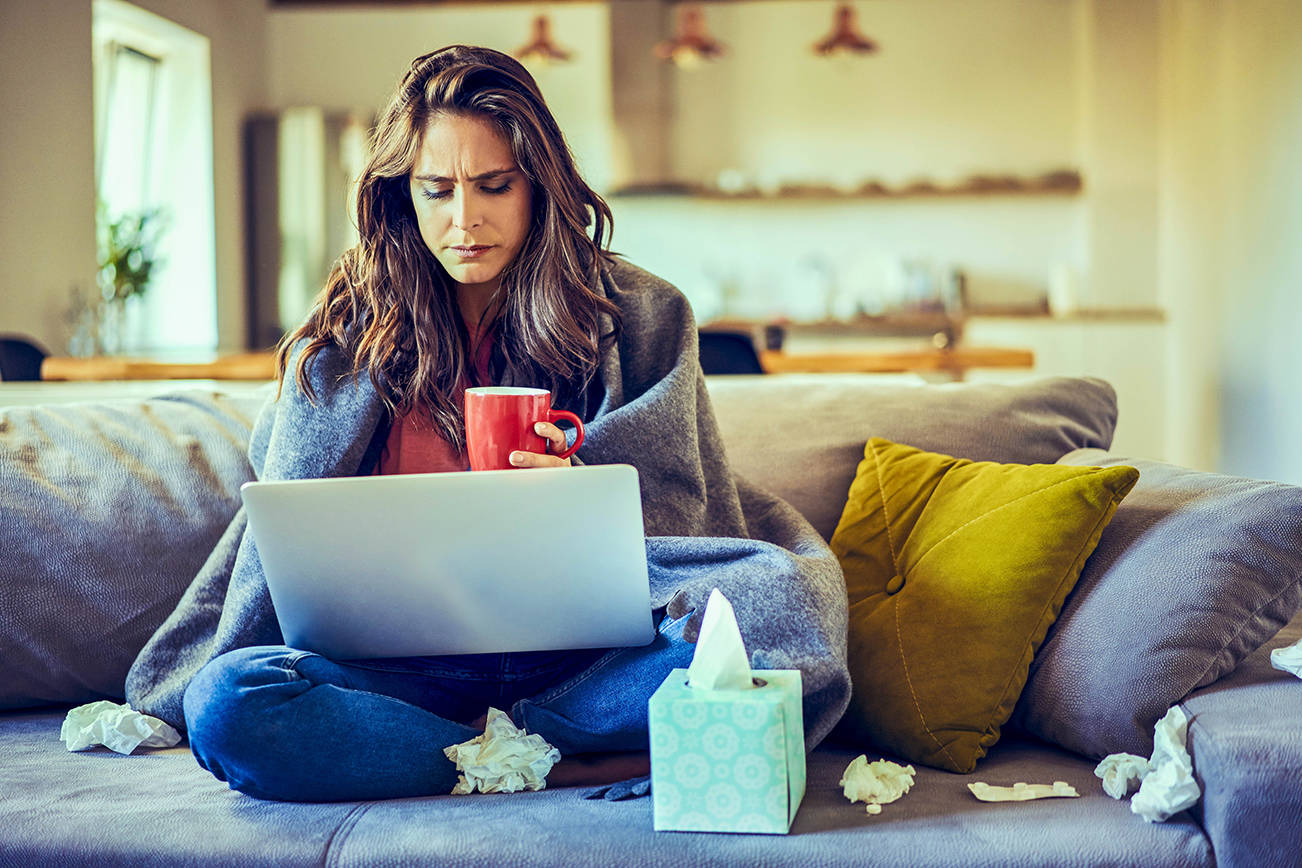Submitted by San Juan County
As we head into winter, sore throats, stuffy noses, and fevers become far more common. This year, the risk of COVID heightens our awareness and concern.
We’ve always been asked to stay home when sick, but what does that mean? If you have seasonal allergies, do you stay home? Do you stay home if you’re recovering from a cold and fighting a lingering sore throat? How long do you wait after being sick to return to work? There aren’t too many certainties these days, but below is some commonsense guidance.
First off, if you were in close contact with someone with a confirmed positive COVID test result and have NOT been contacted by public health authorities, please call 360-370-7500.
Secondly, there are two categories of COVID symptoms:
|
CLASS A: More Worrisome |
CLASS B: Less Worrisome |
|
|
With that as a starting point, here are some basic guidelines:
SYMPTOMS: If you have any Class A symptoms or 2 or more Class B symptoms: contact your healthcare provider. A COVID test is strongly recommended.
• If you contact your health care provider and either don’t receive a COVID test, or receive a COVID test that is NEGATIVE, you should stay at home until:
- 24 hours after your fever (if present) has resolved (without help of medications), AND
- Your symptoms have improved, OR
- Your health care provider has cleared you to return to work, school, etc.
• If you contact your healthcare provider and received a POSITIVE COVID test, you should stay home until:
- It has been 10 days since your symptoms began, AND
- 24 hours after your fever has resolved (without help of medications), AND
- Your symptoms have improved, OR
- Your health care provider has cleared you to return to work, school, etc.
And if you only have one Class B symptom, do the smart thing and stay home until you’re feeling healthy. If the symptom doesn’t resolve, then contact your healthcare provider.
From a public health standpoint, there has always been caution about the start of winter, reopening of schools, holiday travel, and our move indoors for many activities and gatherings. We are entering an especially vulnerable time, especially with cases rising across the United States and Washington.
We can’t eliminate all risk, but we can continue to be thoughtful, careful, and respectful of our communities and our friends and neighbors. That continued diligence will help to ensure continued success.




